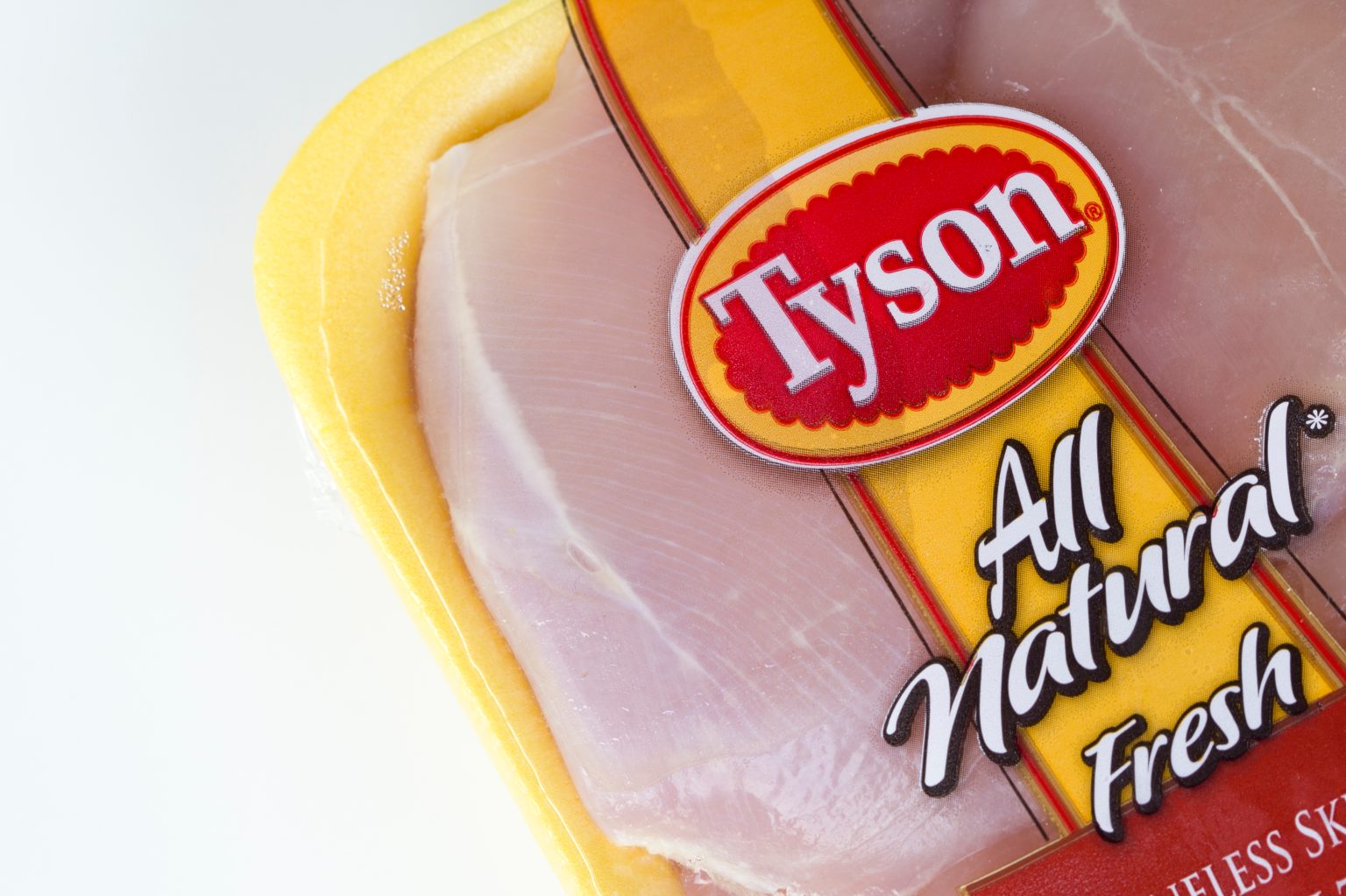Operational efficiencies, following a series of cost-cutting measures, have propelled third-quarter earnings for the nation’s largest meat company beyond executive expectations.
Tyson Foods, Inc. announced one of its strongest earnings quarters to date on Monday, with the company’s CEO highlighting a “remarkable turnaround” in the chicken and pork sectors after a period of challenging market conditions that led to layoffs and plant closures.
Chicken profits in the third quarter reached their highest level in the past eight years. Overall earnings were the strongest in the last seven quarters, according to CEO Donnie King in a call with analysts. Adjusted operating income totalled $491 million for the three months ending on 29th June, up 174% compared to last year.
“We are clearly benefiting from better market conditions,” King stated. In addition to lower feed costs, the meat giant is also reaping benefits from operational improvements after closing or selling a number of plants to optimise its production footprint.
Following a downturn for meatpacking companies, pressured by high labour, input, and operational costs, a global surplus of grain has lowered feed prices, benefiting Tyson, Pilgrim’s Pride, and other competitors.
In addition to lower costs, King mentioned that live operations for the chicken business continue to improve, with hatchability and livability rates up compared to last year, as Tyson optimises its smaller production footprint.
Over the past year, the Arkansas-based company has closed nine processing plants — six chicken and three fresh meats — including a recent pork plant closure in Perry, Iowa, at the end of June. These closures have significantly boosted profits in the chicken and pork sectors, exceeding executive expectations, King reported.
“Our disciplined approach to capital allocation continues to improve cash flow,” King added, noting: “In fact, all of our businesses are more agile, collaborative, and disciplined than they have been in some time.”
Tyson is currently reinvesting some of its chicken profits to meet growing demand for value-added products, such as frozen tenders and nuggets. King mentioned that Tyson has utilised the proceeds to expedite the ramping up of its fully-cooked plant in Danville, Virginia, for new products including honey bites and restaurant-quality wings.
“Our focus on the basics has built a fundamentally stronger chicken business with an eye on the future,” King commented. Adjusted chicken income soared to $307 million in the quarter, up from a loss of $63 million last year.
The pork business also contributed to Tyson’s turnaround, with herd health and productivity remaining strong, ensuring an ample supply of lean hogs. Operational efficiencies combined with strong demand led to better-than-anticipated results, King stated.
Adjusted pork income totalled $22 million in the quarter compared to a loss of $70 million last year.
Meanwhile, King reported that Tyson’s prepared foods business, which includes branded products from Jimmy Dean, Ball Park, and Hillshire Farm, met company expectations. Beef also performed as anticipated, with little to no indication of a U.S. cattle rebuild on the horizon, fuelling market uncertainty and higher grocery store prices.
Looking forward, Tyson remains optimistic about profits for the rest of the year, updating its adjusted operating income outlook to between $1.6 to $1.8 billion for fiscal 2024. Sales expectations remained unchanged.
